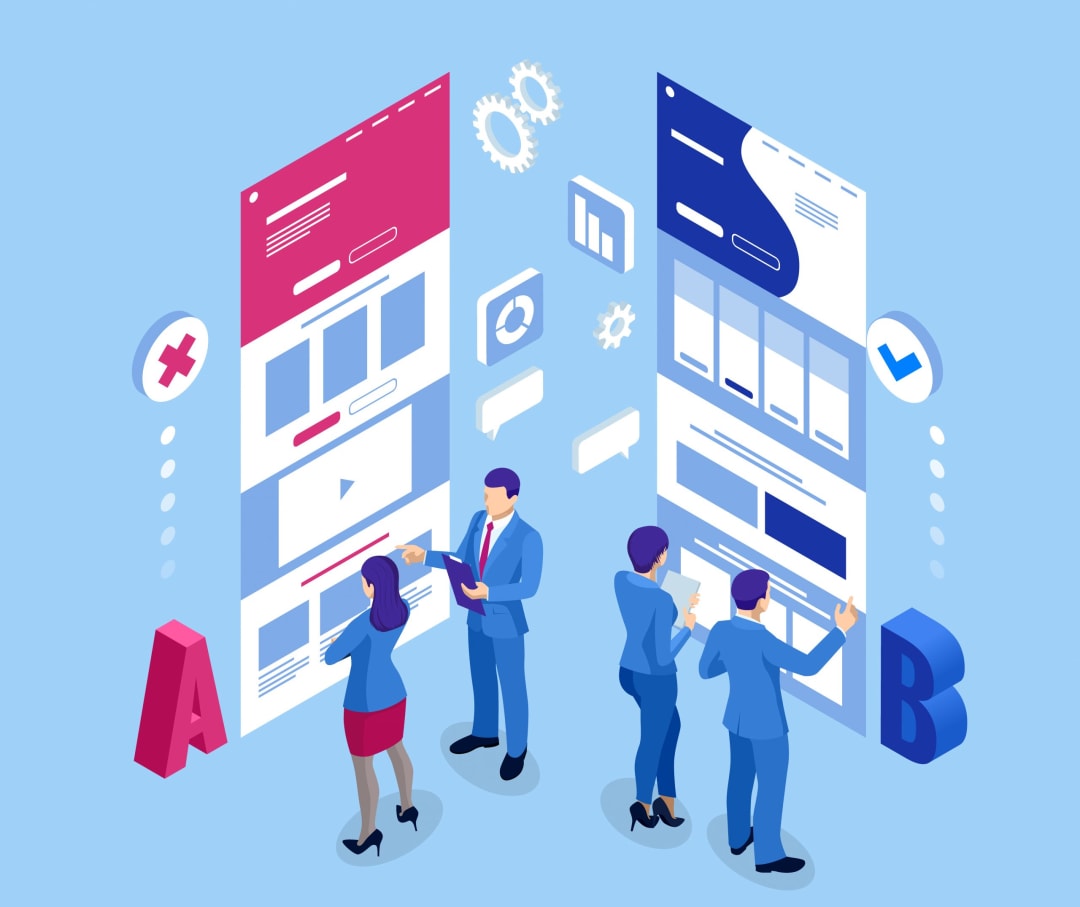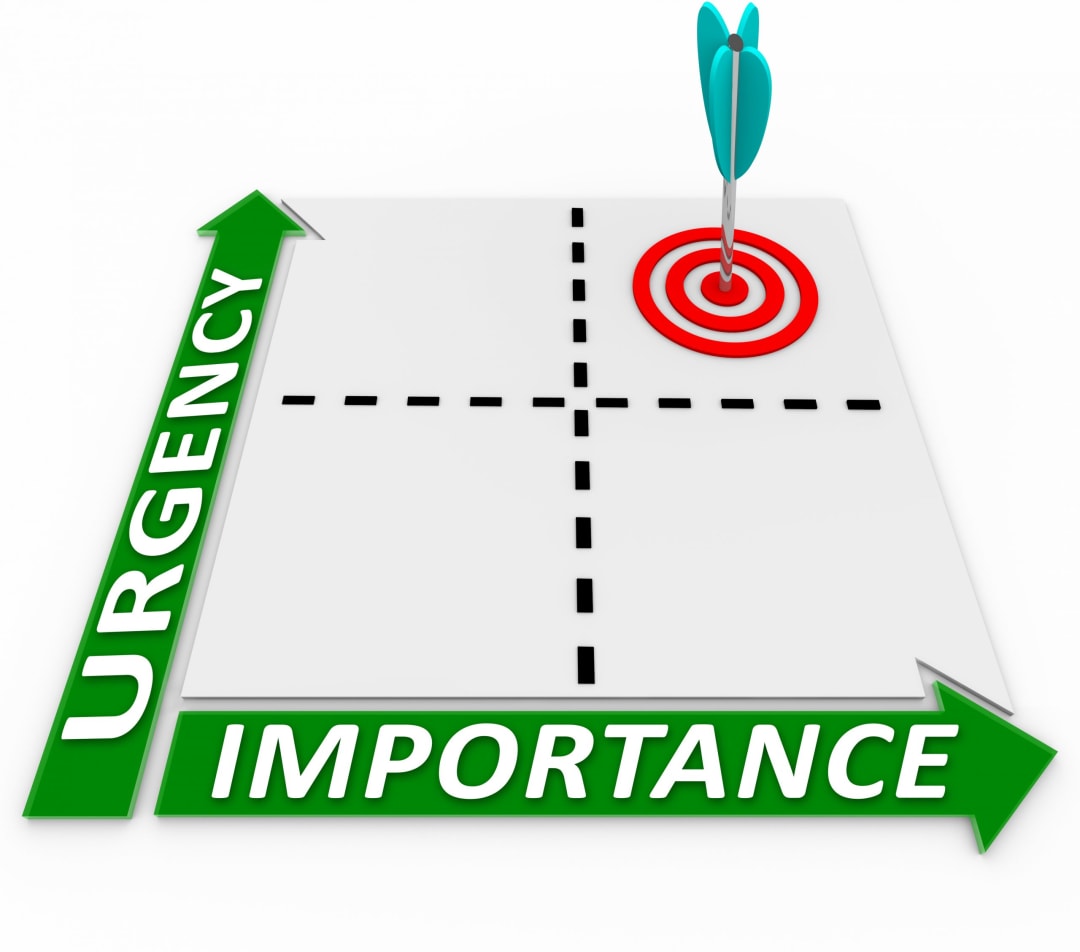15 Technical Sales Interview Questions + How to Answer Them was originally published on Springboard.
“Digital transformation was coming no matter what,” says Craig Rosenberg, Distinguished VP-Analyst at Gartner, a top tech research and consultancy firm. “COVID-19 just accelerated everything. In other words, digital transformation is here to stay.”
Published in LinkedIn’s Global State of Sales 2021 report, Rosenberg’s remarks highlight an operational overhaul that has revolutionized fields from healthcare to education. Across industries, organizations are embracing data-driven strategies—and this transformation is perhaps most apparent in commerce.
According to the report, 74% of sellers say their companies plan to spend more on sales intelligence tools in the next 12 months. AI adoption has skyrocketed over the last two years, and applications for data analytics have expanded. Rising demand for these products and services means that the need for technical sales professionals is also projected to grow.
If you are a sociable go-getter with a technical streak, now is an ideal time to pivot into a tech sales position. To help you push your career forward, we’ve compiled a comprehensive list of technical sales interview questions and answers.
What Is Technical Sales?

In the tech world, sales reps are typically employed by companies like Oracle, Salesforce, and Slack that operate in B2B (business-to-business) spaces. Technical sales specialists combine strong interpersonal skills with fine-grained technical knowledge to sell products and services designed to streamline and enhance business operations.
Technical sales representatives must be able to build relationships and rapport with potential clients while rationally demonstrating the value of a complex technical product. A tech sales rep should be good with people, but must also thoroughly understand the technical details of a product’s functionality. Frequently, this role also requires extensive travel across a broad sales territory that covers multiple states.
Technical Sales vs Sales Engineering

While technical sales interview questions will focus primarily on your ability to close the deal, many technical sales roles also encompass supportive responsibilities that fall under the umbrella of sales engineering.
Sales engineering responsibilities focus on technical product presentations and conveying how the specific technical aspects of the product will solve business problems. Product management professionals rely on technical sales reps to facilitate sales calls and product demos. Sales engineering is the art of applying engineering in a sales context, and in addition to closing deals involves collaboration with clients and teammates to provide technical support and advice.
Technical Sales Interview Questions

Common sales interview questions are structured to assess your skills, experience, character, and overarching knowledge of the sales process. Read on to find out how to answer sales interview questions that you’re likely to field in discussions with hiring managers.
How Do You Deal With Objections?

This question is designed to evaluate your ability to overcome obstacles and make advances towards securing client commitment. Objections often stem from core issues like:
- Lack of need. The client is not aware of a problem that needs to be solved.
- Lack of urgency. The client is not aware that the problem is pressing.
- Lack of trust. The client feels unsure about your relationship, product, or organization.
- Lack of funds. The client feels that price is an issue.
Start by listening attentively to the objection. Demonstrate your commitment to hearing the client’s concerns with verbal and nonverbal cues. Request to discuss the matter further, and ask questions to uncover the root of the problem. Isolate the core objection and respond with a clear, concise value proposition that appropriately addresses the concern.
Check in with your client to find out if you have sufficiently addressed their concern, and ask how they feel about your solution. Continue to facilitate dialogue with open ended questions until they fully understand and feel satisfied with your solution. Stay positive and remain focused on moving the sale forward.
What’s a Time You Failed Miserably at Something and How Did You Recover?

Interviewers use this question to assess your capacity to recognize your weaknesses and assume responsibility for shortcomings or missteps. Your answer to this question will shed light on your self-awareness, risk tolerance, and coping skills.
When discussing a past failure, contextualize the situation and explain the problem you were tasked with solving. Briefly recount your approach to solving the problem, and note what went wrong and why. Discuss the results of your approach, and own your mistakes. Above all, highlight what you learned from the experience.
What Do You Know About Our Company?

This question is more than a simple check to see if you did your research. Hiring managers want to know why you would be the right fit for their company in particular. Use your answer to demonstrate how your skills and strengths meet the organization’s needs. This is also an opportunity to demonstrate how your values align with the company’s mission and culture.
Be prepared to discuss recent acquisitions, company leadership, and any significant hires who inspire you. Show that you have a finger on the pulse of company news, especially in the context of developments within their target market. With each point, you make, be sure to emphasize how your experience, personality, and passions dovetail with the company’s goals and values.
What Do You Know About Our Product(s)?
Hiring managers will use this question to assess your ability to sell. To show that the product motivates you to sell, your answer should be framed as a value proposition that would convince a prospect to purchase the product.
Focus on what the product provides, who the product is designed to serve, and the unique ways in which the product addresses buyer pain points (and eclipses competitor products). Use quantifiable metrics, and illustrate how the product embodies the values of the company.
What Are Three Qualities Every Salesperson Should Have?

Hiring managers will use this question to learn more about your approach to the sales process. Your answer will shed light on how you operate, so emphasize traits that correlate with specific, sought-after sales skills that add tangible value.
For example, explain why every salesperson should be a good listener. Strong listening skills are essential when coaxing a prospect to open up about objections or when evaluating a potential buyer’s needs. Without excellent listening skills, a salesperson cannot gather the necessary intelligence to progress a sale.
Empathy is also vital—salespeople must understand how their customers feel in order to sell properly and anticipate customer needs. Finally, curiosity is key. Effective salespeople are curious about how to meet client needs and remain inquisitive about market disruptions and competitor developments.
Which Is More Important to You: Reaching Your Target or Providing Good Customer Service?
This question is designed to evaluate your ability to manage sales goals while facilitating a buyer experience that will drive growth over time. According to research conducted by Gartner, companies that deliver superlative buyer experience grow twice as quickly as their counterparts that offer average buyer experiences.
Gartner also found that an excellent customer experience has the greatest impact on whether a sale goes through—overshadowing the price or merit of the product itself. As such, prioritizing customer service can actually help you meet your quota. Data shows that many B2B-facing companies expect existing customers to generate 77% of the revenue. Great customer service strengthens loyalty, increases renewals, reduces churn, and helps convert existing customers into brand evangelists who will expand your customer base.
How Can You Convince Us That You Will Not Leave Us and Skip to the Next Job in a Year?

Hiring and onboarding are costly, and employee retention is a priority for many hiring managers. This interview question is asking for a solid proof that you are sufficiently passionate about the company to stay put.
A strong answer to this question will highlight the ways that your personality and values align with company culture. You should also touch on how a recent development within the company is relevant to your goals. Discuss intentions you have to grow with the organization, and highlight opportunities for advancement that excite you.
Tell Me About the Last Product(s) You Sold As if I Were a Potential Customer.
This question serves to evaluate your sales technique and communication skills. In your answer, focus on the product features your interviewer will value. Ask some open-ended questions to get a sense of your interviewer’s relevant pain points, and explain how the product is uniquely equipped to resolve those issues.
Ask the interviewer about previous experiences with similar products, and highlight how this product adds value in a way that competitor products do not. Probing for information about their past experiences will also help you uncover key objections that you’ll need to isolate and address in order to push the “sale” forward.
How Do Sales and Marketing Work Together?

Hiring managers want to test your knowledge of lead generation and your understanding of the conversion process. Effective marketing strategies will help warm up leads and facilitate customer conversions, which makes your job easier. Vital insights gleaned via marketing research can inform sales strategies, and marketing campaigns can nurture and revive leads that have gone cold.
Sales in turn can contribute to marketing efforts by relaying crucial customer feedback. Sales reps can gather information about how campaign messaging is landing with prospective buyers, illuminating successful pushes as well as initiatives that may need adjustments.
What Do You Like To Ask Potential Customers?
Interviewers use this question to gauge your ability to craft questions that uncover your customer’s needs. Stick with open-ended questions that open up a dialogue and invite prospects to respond in detail. Strong open-ended questions might include:
- What issues do you encounter over the course of a typical day?
- What are your goals for the next year?
- What might prevent your team from reaching those goals?
- What do you consider to be your primary opportunities for growth?
- What does your budget look like?
What Sales Tools or Assets Do You Like To Use?
This question functions to assess your competency with sales tools and helps hiring managers envision how you’ll get the job done. First and foremost, you should be using CRM (Customer Relationship Management) software like Salesforce or Pipedrive to optimize your sales processes. Working knowledge of data integration tools, sales intelligence technology, and analytics software will also demonstrate that you are capitalizing on every resource available to develop a data-driven sales strategy.
A stalwart answer to this question should also discuss sales assets that will help streamline your procedures and enhance your efficacy when interfacing with prospects. Assets like buyer personas, discovery call checklists, and case studies will help you identify promising leads, uncover critical information from prospects, and communicate the effectiveness of your product.
If You Got This Job, What Would Your First 30, 60, and 90 Days Look Like?

A hiring manager will ask this question to get a sense of your goals and personal performance standards. To properly answer this question, you’ll need to do some digging to figure out what’s expected of new hires during the first three months of employment. After you’ve researched the responsibilities of the role, consider concrete goals you’ll be able to accomplish during this time. These goals should align with the company’s larger mission, and should be quantifiable.
During your first 30 days, you’ll be expected to cultivate a strong working comprehension of the organization’s process and product. Accordingly, your 30-day goals should revolve around knowledge acquisition. During your second 30 days of employment, you’ll need to implement that knowledge and contribute to the achievement of departmental objectives. Try to focus your 60-day goals on how you will add value to the company. Last but not least, your 90-day targets should focus on optimization of current organizational processes and leadership opportunities if applicable.
When Do You Give Up on a Lead?
Polite persistence is key, but sometimes it is appropriate to give up on a lead. Hiring managers are looking for reps who know how to make the most of their time, which requires discretion concerning unresponsive leads.
Consider letting go if you’ve sent a proposal but its expiration date has passed—and the lead ignores numerous outreach attempts via phone, email, or LinkedIn. It’s also acceptable to give up on a lead if you’ve made two weekly attempts to connect for four weeks in a row, and your follow-ups have not received a response. Finally, you might want to give up on a lead when a key decision-maker (as opposed to a gatekeeper) has declined the offer and provided a strong explanation for their decision. Do not take rejection personally.
What Do You Do if You’re Behind on Your Sales Goals?
Hiring managers ask this question to measure your ability and willingness to reassess and readjust your sales strategy. Start by identifying why your sales goals were missed. Analyze your KPIs to pinpoint when and where things went awry. To pinpoint weak areas in your sales process, refer back to your sales plan and adjust tactics that were not successful.
Conversely, you should also set aside time to take stock of previous deals you’ve closed. Evaluate a recent successful sale and take stock of how many calls were necessary to book a meeting, how many meetings were required before heading to the proposal, and how many proposals were delivered before closing. This will help you break your sales goals down into actionable, quantifiable steps.
To right the ship, hone in on prospects that are continuing to progress and analyze what’s making those leads successful. To speedily generate new opportunities, engage again with former prospects via thought leadership content and personalized follow-ups. Nurturing those prospects may win you referrals and help narrow the gap between you and your goals. Stay focused on your current opportunity pipeline and make note of deals that might close by year’s end.
How Do You Prioritize Different Clients and Leads?

Use this question to showcase your strategic prowess and ability to optimize. While you can use traditional lead qualification frameworks like BANT (budget, authority, need, and timing) and CHAMP (challenges, authority, money, and prioritization) to systematically evaluate the quality of your leads, the right answer will focus on how you use digital marketing tools to develop data-driven lead management strategies.
Discuss how you utilize CRM data to create a lead scoring system, with points assigned to each lead to measure their interest in or compatibility with your product. Show your ability to establish a scoring system and criteria for point assignments. Highlight your ability to define MQLs (marketing qualifying leads), and demonstrate how you would assign appropriate sales actions to each point value. Leads with higher point values are always a priority.
Tech Sales Interview FAQs
Wondering what to expect from your interview? Curious about how to prepare for the hiring process? These are great questions! Find out everything you’ll need to know below.
How Do You Ace a Tech Sales Interview?

Reframe the interview itself as a sale. Identify a growth opportunity for your potential employer, and illustrate how hiring you would solve a pain point or add value in that context. To prove your worth, provide tangible examples of past successes and offer up performance metrics whenever possible. Prepare to guide the interviewer through your sales process and discuss previous deals that you are proud of (or that you learned from).
Top candidates are competitive and goal-oriented, so showcase those qualities when talking about your prior experience as well as your interests and hobbies outside of work. Share details that highlight your passion and emphasize the ways in which you’re always working towards a new goal.
Finally, be sure to do your research beforehand. Consider signing up for a free trial of a software product that the company sells, and read product reviews online. If possible, try to dig up customer case studies. This will help you understand both the product and your audience—which will impress recruiters during your interview.
How Do You Prepare for a Tech Sales Interview?
Start by gathering knowledge about the company’s products. Review their promotional materials and search for articles or blog posts about recent developments. Next, assemble key market intelligence. Learn about the company’s competitors, find out how consumers view the company’s products, and assess how these products might adapt and change in the near future. Harness this information to tailor your responses when answering the practice questions above.
When preparing for your interview, practice quantifying your past achievements with concrete figures. To convey your prior successes more effectively, try discussing those experiences using the STAR method. This communication framework will help you frame your successes as succinct narratives that demonstrate strong problem-solving capabilities.
What Questions Should You Ask the Recruiter in a Technical Sales Interview?
Open-ended questions are the gold standard in sales—so be sure to honor that format whenever you get the chance. While this section of the interview might seem like your chance to gather information about your potential employer, hiring managers will also be using this time to evaluate your ability to ask questions and dialogue with prospects. Winning questions will demonstrate practicality, a growth mindset, and a desire to thrive in the role.
Possible questions might include:
- What are common qualities in your top-performing team members?
- What are the top challenges new team members face in their first 90 days?
- Can you walk me through a broad overview of your sales process?
What’s a Good Way To Follow Up After a Tech Sales Interview?
Be sure to customize thank you notes and follow-up messages at every stage of your interview process. Tailor an email to each hiring manager, recruiter, or stakeholder involved. Touch on topics you discussed together, and casually mention a shared interest or personal connection that will help them remember your conversation.
An effective follow-up message should stand out from the pack. Highlight the values you share with the company, and illustrate why you are uniquely qualified to add value to the company in this role. Be authentic, and don’t forget to sell your reader on making you an offer!
The post 15 Technical Sales Interview Questions + How to Answer Them appeared first on Springboard Blog.

